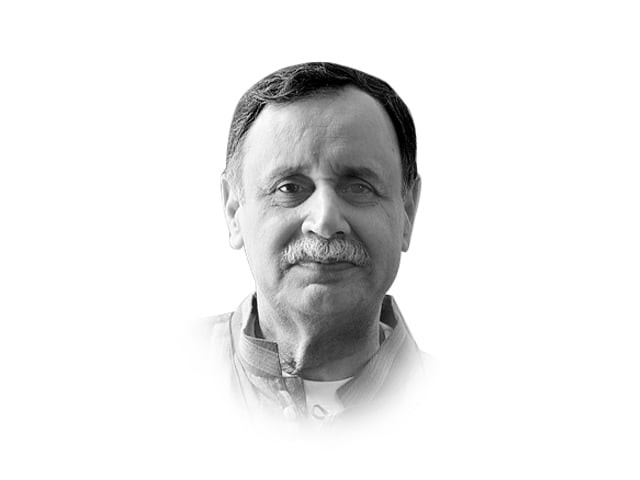Reconstitute the Election Commission of Pakistan
ECP, much like police and bureaucracy of Pakistan, has become completely dysfunctional and incapable of self-reform.

The writer is an Occupational Health & Safety professional also engaged in writing and advocacy on social issues. He can be reached at naeemsadiq@gmail.com and tweets @saynotoweapons
The 2008 elections were fraudulent — conducted with 37.2 million fake votes. No one was held accountable. No one went to jail. The 2013 elections were massively rigged and porous. The ECP failed to disqualify candidates who made false asset declarations, exceeded the election expenditure limits, evaded taxes or had fake degrees, criminal records or dual nationalities. Of the 319 MNAs, 108 paid no tax at all. Three others paid less than Rs100. The elections returned not just the same set of ‘Pirs’, ‘Makhdooms’, landlords and decadent dynasties but also allowed members of the banned militant outfits to sneak in.
An electoral process that consistently recycles the same undesirable raw material cannot be expected to create a democratic order even after a thousand years. The ECP, much like the police and the bureaucracy of Pakistan, has become completely dysfunctional and incapable of self-reform. Our best option may be to dissolve the present structure and constitute a fresh ECP.
The ECP should consist of seven members, all below 70 years of age, selected from different segments of society — plain citizens, judges, retired civil or military officials and professionals. At least two of them must be females and one from a minority community. They should be selected by a committee consisting of the chief justice and at least six other judges of the Supreme Court. Once selected, the ECP members must themselves elect one out of the seven as the chief election commissioner.
As suggested by the Supreme Court, Pakistan should immediately adopt the ‘proportionate representation’ voting system in which the seats are allocated according to the total number of votes obtained by a party. The overseas Pakistanis ought to be given their right to vote. Every citizen should be free to vote from any location in Pakistan regardless of his/her permanent address.
Largely because of its incompetence and bureaucratic outlook, the ECP has so far failed to use the Electronic Voting Machines (EVMs). There ought to be no more elections without the EVMs, which can be developed, procured and tested in a few months. Smart national identity cards and biometric identification must be made a compulsory requirement, eliminating the need for wooden boxes, ballot papers and the infamous magnetic ink.
Effective scrutiny of candidates is the weakest link in the ECP’s chain. It simply cannot conceive and implement the processes necessary to undertake these tasks. Candidates must fill and make direct online submissions of nomination forms 90 days before the election. The entire information ought to be available on the ECP website — allowing 90 days to the ECP, the public, the HEC, Nadra, the FBR, utility companies, banks and other organisations to scrutinise the credentials of each candidate.
The seven members of the ECP must be directly responsible for the scrutiny of candidates while the role of the returning officers should be limited to supervising the actual conduct of elections. To give clarity to voters and to eliminate the need for subsequent by-elections, candidates must be limited to contest from one constituency only. Any participant contesting elections ought to surrender all licensed and unlicensed weapons as an evidence of his belief in conflict-resolution through peaceful methods.
Pakistan ought to adopt the ‘negative voting’ system. The EVMs must include the option to choose “none of the above”. Where the negative votes in a constituency are more than the highest votes received by a candidate, all candidates step down and there is re-election in that constituency.
Voting should be spread over 10 to 15 days. The government should provide free transport to carry voters from various localities to the polling stations. Political parties and candidates should be barred from providing transport, making payments or arranging free meals. The ECP should appoint professional teams to monitor and disqualify candidates for violation of expenditure limits. The system of ‘separate electorate’ should be done away with and people of all faiths should vote as equal members of a common electorate.
It is unfair to expect illiterate representatives to solve the complex problems of a modern state. Pakistan ought to reintroduce the minimum educational requirement of at least a bachelor’s degree. Finally, the term of the Parliament should be reduced from five to four years.
A parliament solely committed to its own preservation will not voluntarily adopt any of these suggestions. The only option for the people is to raise their voice and to reject those who refuse to change.
Published in The Express Tribune, August 26th, 2014.
Like Opinion & Editorial on Facebook, follow @ETOpEd on Twitter to receive all updates on all our daily pieces.













COMMENTS
Comments are moderated and generally will be posted if they are on-topic and not abusive.
For more information, please see our Comments FAQ